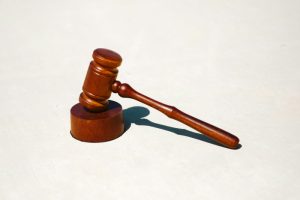When it comes to personal injury cases, the burden of proof plays a pivotal role in determining the outcome. For the claimant, this standard requires demonstrating that the defendant was responsible for causing harm due to negligence or misconduct. Successfully shifting the burden of proof onto the defendant can significantly impact the trajectory and potential success of a case.
Understanding who holds the burden of proof and how it can shift during proceedings is crucial. While the plaintiff must initially show evidence of negligence, compelling evidence may require the defendant to provide evidence countering the claim. This dynamic can influence settlement negotiations and courtroom strategies, shaping the entire case process.
Understanding the Burden of Proof in Personal Injury Cases
In personal injury cases, the burden of proof is crucial to determine liability. It defines the responsibility of each party in presenting evidence and can significantly influence the outcome of a case.
Definition and Legal Standards
The burden of proof is a legal requirement dictating that a party must prove certain assertions or claims in court. In personal injury cases, this typically falls on the plaintiff, who must demonstrate that the defendant is liable for the injuries sustained.
Legal standards are generally divided into different levels:
- Preponderance of the Evidence: This is the most common standard in personal injury cases, requiring that the plaintiff’s evidence be more convincing than the defendant’s.
- Clear and Convincing Evidence: A higher standard used in some civil cases, demanding that the truth of the claim be highly probable.
Understanding these standards is important as they guide how each side presents its arguments in court.
Plaintiff’s Responsibilities
The plaintiff has several responsibilities concerning the burden of proof. First, they must establish that the defendant owed them a duty of care, which was breached, resulting in harm. This involves proving that the defendant’s actions were directly or indirectly responsible for the injuries.
Moreover, plaintiffs must prove damages. This includes physical injuries, emotional distress, and financial losses incurred because of the injury. They must present credible evidence to support these claims.
Neglecting these responsibilities often leads to unsuccessful claims, making it critical for the plaintiff to meticulously gather and present sufficient evidence.
Role of Evidence
Evidence is the cornerstone of meeting the burden of proof in personal injury cases. Both direct evidence (like eyewitness testimony) and circumstantial evidence (such as surveillance footage) play vital roles. The quality and strength of the evidence can significantly sway the verdict.
Types of evidence include:
- Documentation: Medical records and financial statements that quantify damages.
- Expert testimony: Professionals who provide insights into how the injury occurred or its impact.
Collecting and effectively utilizing evidence supports the plaintiff’s claims, helping to establish liability and damages convincingly.
Navigating Personal Injury Litigation
In personal injury cases, the steps from filing a claim to receiving compensation can be intricate. Skilled attorneys play a critical role, helping clients understand damages and guiding decisions between settlements and trials.
The Role of Attorneys
Attorneys are crucial in personal injury litigation. They gather evidence to build strong cases and protect client interests. Their responsibilities include negotiating with insurance companies and ensuring fair settlements. They also represent clients in court, presenting cases clearly to judges and juries.
Experienced attorneys, particularly Houston Personal Injury Lawyers, often have extensive networks and resources. These assets can be pivotal in gathering expert witnesses and evidence. They offer legal advice tailored to each case’s unique aspects, helping plaintiffs navigate legal complexities.
Damages and Compensation
Compensation in personal injury cases covers various damages. Economic damages, such as medical expenses and lost wages, are straightforward. Non-economic damages, like pain and suffering, require more subjective assessments. Attorneys help clients understand what they can claim and substantiate these claims with evidence.
In some cases, punitive damages are awarded to penalize gross negligence. It’s essential for clients to know what compensations are possible and how attorneys evaluate the case to maximize potential awards. This ensures that plaintiffs receive fair compensation for their injuries.
Settlement and Trial
Each case may conclude with a settlement or proceed to trial. Settlements are agreements where the plaintiff accepts compensation to resolve the case outside court. This option often results in faster resolutions and reduced legal costs.
Trials, by contrast, can be lengthy and uncertain. They occur when parties cannot agree on settlements and require formal court intervention. Houston Personal Injury Lawyers can provide clients with clear insights into the likelihood of success at trial compared to settling, helping them make informed decisions.


